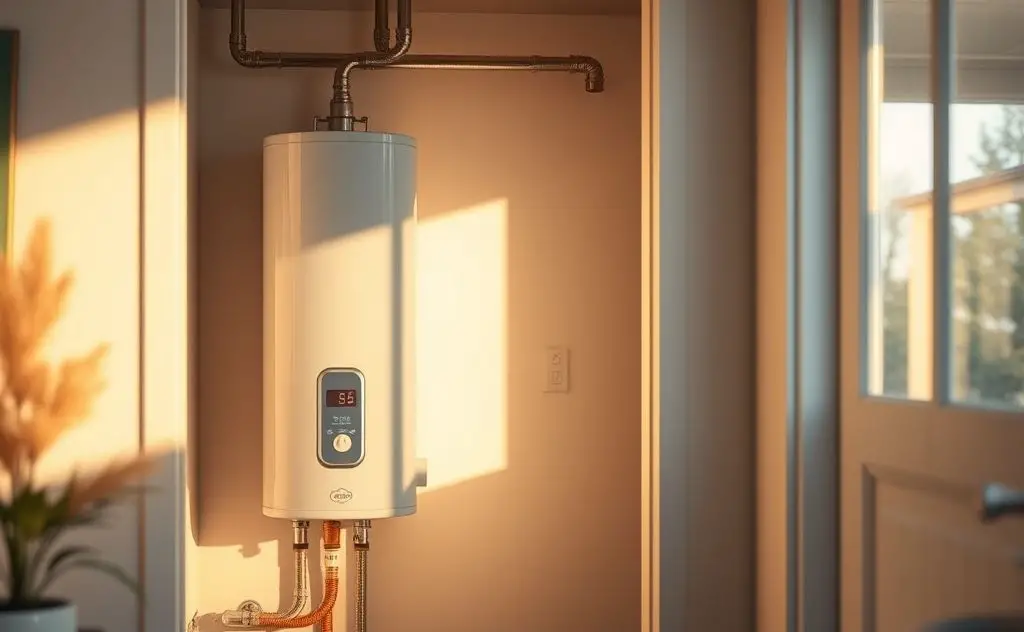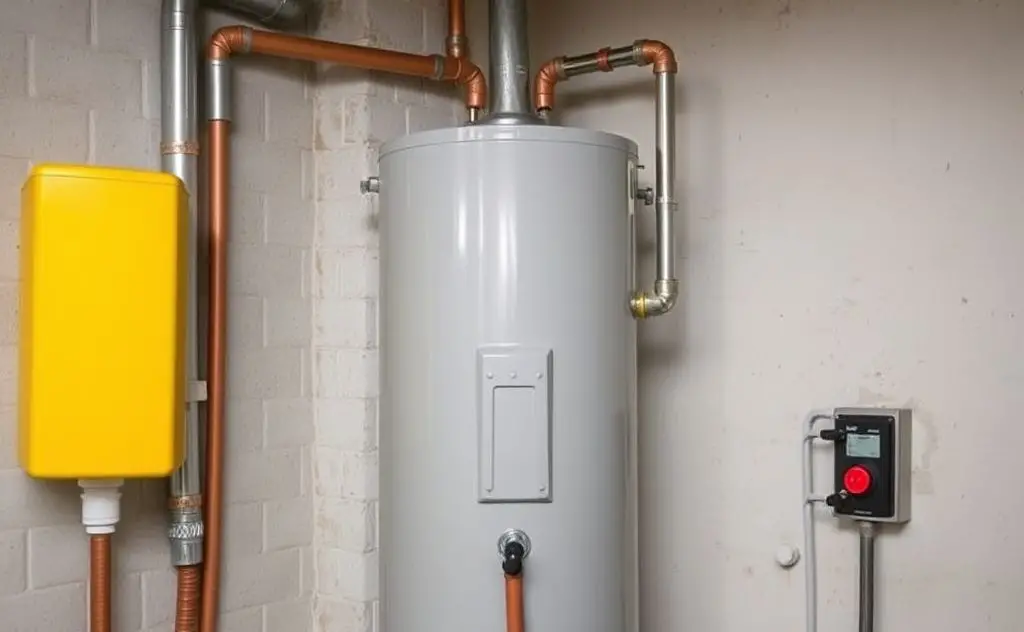Yes, a malfunctioning hot water heater can lead to higher electric bills due to inefficient heating, increased energy consumption, and potential leaks that cause the unit to work harder than necessary.
A malfunctioning water heater can silently drain your wallet by spiking your electricity costs. From sediment buildup to failing thermostats, even minor issues force your system to work harder—and consume more power.

How Faulty Water Heaters Waste Electricity
Electric water heaters account for 18% of home energy use according to the U.S. Department of Energy. When components fail, consumption can jump by 30% or more.
Sediment Buildup in Tanks
Mineral deposits accumulate at the tank bottom over time, creating a barrier between heating elements and water. This forces elements to:
- Run longer cycles
- Overheat to compensate
- Fail prematurely
A ½” sediment layer can increase energy use by 15%. Annual flushing prevents this issue.
Failing Heating Elements
Corroded or cracked elements lose efficiency. Symptoms include:
| Issue | Energy Impact |
|---|---|
| Partial element failure | 20-30% longer heating times |
| Complete failure | Other element works overtime |
Thermostat Malfunctions
Faulty thermostats may:
- Not shut off at set temperature
- Cycle erratically
- Read temperatures incorrectly
This can cause continuous operation, wasting significant electricity.

Other Costly Water Heater Issues
Insulation Breakdown
Older tanks lose up to 45% more heat through deteriorated insulation. Consider upgrading to a modern energy-efficient model if your unit is over 10 years old.
Leaking Tanks
A leaking water heater:
- Loses heated water
- Constantly refills with cold water
- Forces repeated heating cycles
Even small leaks can waste hundreds of gallons monthly.
Pressure Valve Problems
A stuck open pressure valve:
- Releases hot water continuously
- Causes temperature fluctuations
- Triggers more heating cycles
When to Repair vs. Replace
Consider these factors:
| Scenario | Solution |
|---|---|
| Unit under 8 years old | Repair likely cost-effective |
| Frequent repairs needed | Replacement recommended |
| Energy Factor below 0.90 | Upgrade to efficient model |
For homes with high hot water demand, tankless or heat pump models can cut energy use by 50% or more.
Maintenance Tips to Save Energy
Annual Flushing
Removes sediment that reduces efficiency. Follow manufacturer guidelines for your model.
Temperature Adjustment
Set thermostat to 120°F (49°C) – each 10°F reduction saves 3-5% on costs.
Insulation Upgrade
Add an insulation blanket if your tank feels warm to the touch. Water heater blankets can reduce standby heat loss by 25-45%.
Leak Checks
Inspect connections, valves, and tank monthly for moisture or drips.
Element Testing
Check resistance with a multimeter annually – should read 10-16 ohms for most elements.
By addressing these issues promptly, you can maintain efficient operation and avoid unnecessary energy waste from your water heating system.
